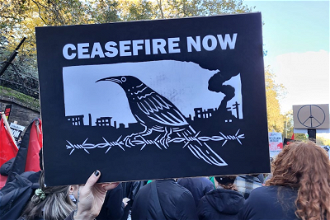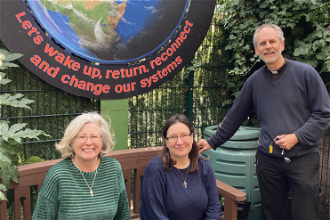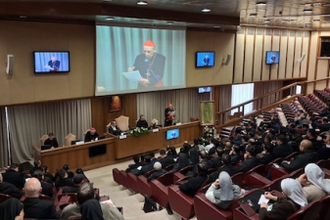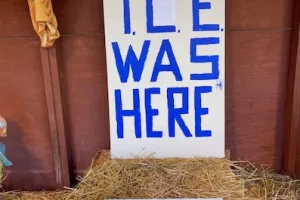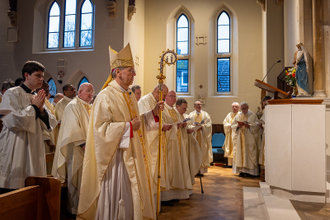Candlemas Birdwatch for Gaza
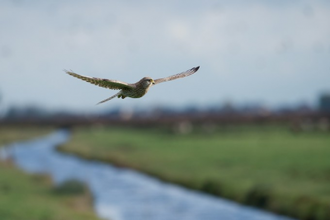
Photo by Vincent van Zalinge on Unsplash
A huge thank you to everyone who has supported the Candlemas Birdwatch for Gaza Emergency Appeal! I am moved and so grateful for your generosity.
I have completed the Birdwatch and am delighted to be able to share with you these words from Jill Howard-Gunasekera of Amos Trust:
'On behalf of Amos Trust thank you for supporting Philip's fundraising effort. We loved the creativity of the fundraising, it felt like a small breath of beauty in these dark days.
We have been able to offer significant financial support to our Palestinian partners in Gaza and the West Bank due to the overwhelming response to our ongoing Emergency Appeal (of which Philip's fundraising efforts form an important part). Every fundraising effort is not only providing real practical help on the ground for people struggling to find safety, food and shelter, but it is also bringing real encouragement to our partners as they feel the strength of people's solidarity with them.
Thank you!'
If you would like to make a donation please click HERE
I went to Farlington Marshes, my local nature reserve just off Portsea Island, for the Candlemas Birdwatch. The weather was mild, the sky rather grey.
Companionable groups of slender-necked pintails and teal consorted in the shallow channels running through the mud flats. The teal, our smallest duck, made their familiar, reassuring 'peeps' to each other. The males sport a handsome green stripe over their eyes.
Restless redshank kept a weather eye upon me, bobbing up and down, and uttering their plaintive cries. Not for nothing, are they known as 'yelper', 'warden' and 'watchdog of the marshes'. As with the robin redbreast's breast, the redshank's shanks are in fact a vibrant orange hue.
A pair of stonechats appeared on the top of a bush and took it in turns to swoop down to the ground for a forage before returning to their perch. Their alarm call resembles two pebbles being struck together and explains their name.
About this time, the sun pierced through the clouds and the walk remained bright until towards the end when the clouds gathered once more and gentle rain drops fell.
According to European folklore, Candlemas is the earliest date for the bear to emerge from hibernation. Following carnivalesque choplogic, if the weather is poor, the bear will remain above ground but if the weather is fine it will return to its den to snooze away forty more days. (This tradition was transposed to 'groundhog day' across the Pond.) What would the bear have made of the changeable Hampshire weather I wonder.
Curlew showed in good number. Most fed and walked in silence but several delivered their beautiful bubbling 'courlee' song when on the wing. One bird with damaged primaries combed through seaweed with its long, curved bill - as did a pair of rather more adept turnstones with stouter beaks.
Three of St Brigid's birds hurried along. Oystercatchers. I was delighted to see them and would see several more of the shrill callers around the shoreline. Whether due to oyster scarcity or not, these pied birds are actually celebrated for their ability to drill or prise open mussels and other types of shellfish.
Numerous and whisperingly garrulous dunlin fed in the ooze and the shallows. A solitary grey plover rested among the smaller birds, alert of gaze. Breeding in the northern tundra regions, this bird can overwinter as far south as Australia.
Good numbers of lapwing, aka the green plover, populated the marsh and swept the surrounding sky.
A kestrel - 'kingdom of daylight's dauphin' as celebrated by priest-poet Gerard Manley Hopkins in his poem 'The Windhover' - hovered near the path.
A red-legged partridge stuck close to a moorhen in the lee of a hedgerow. The 'red legs' is considered the most likely contender to be the 'partridge in a pear tree' as it is seen more often in trees than its grey partridge cousin. As well as this curious pairing, I also clapped eyes on the solitary barnacle goose with its white 'farmyard goose' chum, just as I had done on my Epiphany Birdwatch three years ago.
I heard but did not see the skylark as it sang lustily its sublime song. Likewise, the 'mavis', the song thrush, as it sang its repeated melodies from a thicket.
I did see several other birds: wigeon, shelduck, shovelers, mallards, gadwall; Canada geese, mute swans, coots and dabchicks; heron, little egrets; pheasant, starlings, crows, gulls and woodpigeons.
Dark-fronted brent geese were present in impressive number. Over-wintering from as far afield as Bolshevik Island, Siberia, the old English word 'brent' describes their burnt-umber head and upper body parts.
I caught a glimpse of bearded reedlings flitting through the reeds, and two further highlights came at the end of the walk.
A marsh harrier flapped unhurriedly over the reedbeds before alighting in their midst. Some minutes later, I glanced up to see some forty avocets in the sky, their long legs trailing behind them. These beautiful, pied birds with delicate upturned beak alighted on and at the edge of 'the Lake'.
Both species came back from the brink. Both encapsulate simultaneously the fragility and sanctity of life.
Yours in deep gratitude and solidarity.
Philip
Read more about Philip's appeal in his earlier story: www.indcatholicnews.com/news/49053
If you would like to make a donation please click HERE




